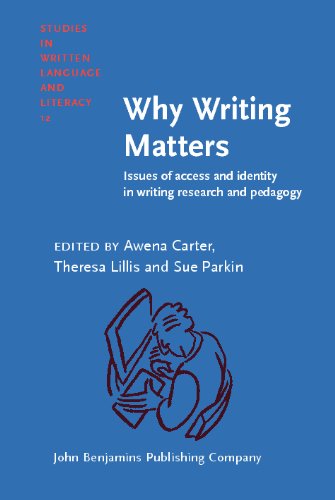

Most ebook files are in PDF format, so you can easily read them using various software such as Foxit Reader or directly on the Google Chrome browser.
Some ebook files are released by publishers in other formats such as .awz, .mobi, .epub, .fb2, etc. You may need to install specific software to read these formats on mobile/PC, such as Calibre.
Please read the tutorial at this link. https://ebooknice.com/page/post?id=faq
We offer FREE conversion to the popular formats you request; however, this may take some time. Therefore, right after payment, please email us, and we will try to provide the service as quickly as possible.
For some exceptional file formats or broken links (if any), please refrain from opening any disputes. Instead, email us first, and we will try to assist within a maximum of 6 hours.
EbookNice Team

Status:
Available4.6
13 reviews
ISBN 10: 9027218072
ISBN 13: 9789027218070
Author: Awena Carter, Theresa Lillis, Sue Parkin
1. Introduction: Why Writing Matters
Overview of writing research and pedagogy
Issues of access and identity in writing
2. Access to Writing
Barriers to writing participation
Equity and inclusion in writing education
3. Writing and Identity
The role of writing in shaping identity
Multilingualism and writing identity
4. Pedagogical Approaches to Writing
Culturally responsive teaching
Writing across the curriculum
5. Writing in Context
Writing in digital environments
Community and workplace writing
6. Research Methods in Writing Studies
Qualitative and quantitative approaches
Ethical considerations
7. Case Studies in Writing Access and Identity
Examples from diverse educational settings
8. Future Directions in Writing Research and Pedagogy
Innovations and challenges ahead
why writing matters
why accessibility matters
why writing is not important
why does accessibility matter
why writing journal is important
Tags: Awena Carter, Theresa Lillis, Sue Parkin, Writing Matters, Pedagogy Studies